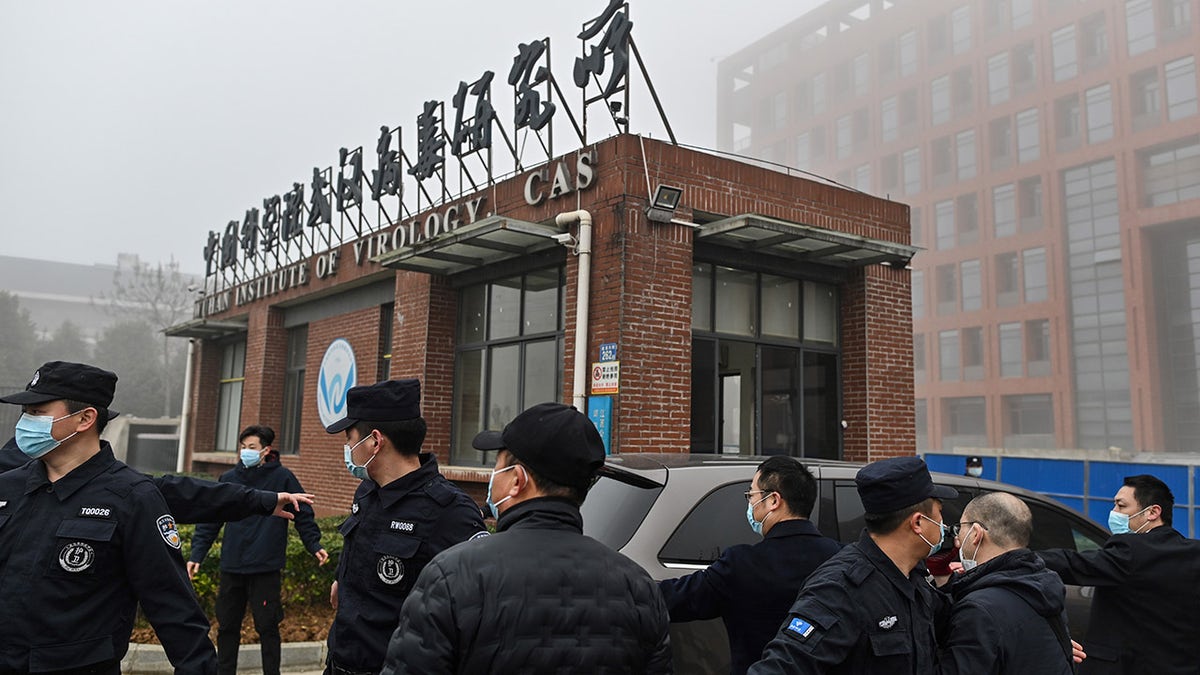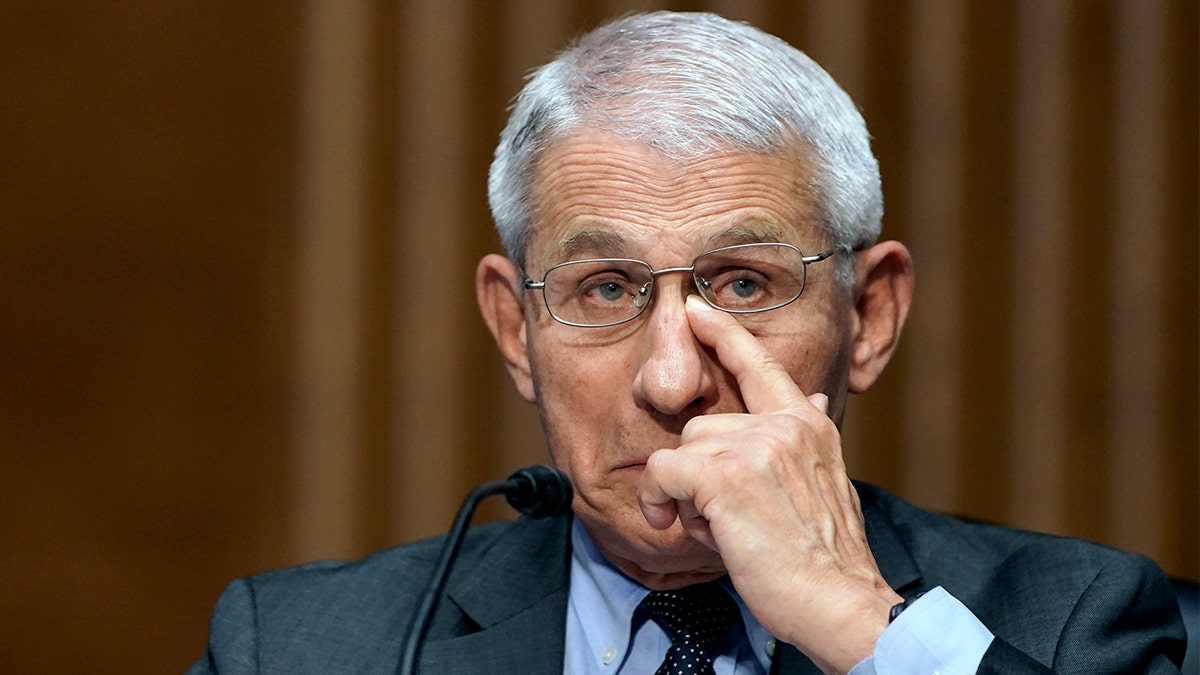Ron Johnson: Dr. Fauci is finally being ‘honest’ about Wuhan lab theory after a year of dismissals
Sen. Ron Johnson, R-Wis., talks Fauci and media's dismissal of Wuhan lab theory as NIH director Collins faces questions from the GOP.
National Institute of Allergy and Infectious Diseases (NIAID) Director Anthony Fauci on Tuesday defended "modest" collaboration with scientists in Wuhan, China on studying bat coronaviruses while asserting that the agency did not allocate the money to do "gain of function" research.
The comments came during a House Appropriations Committee subcommittee hearing on the National Institutes of Health (NIH) fiscal year 2022 budget request. Fauci was asked by Rep. Mark Pocan, D-Wis., on a $600,000 grant from NIAID that went to a group called EcoHealth Alliance, which then paid the Wuhan Institute of Virology to study the risk that bat coronaviruses could infect humans.

Members of the World Health Organization (WHO) team investigating the origins of the COVID-19 coronavirus, arrive at the Wuhan Institute of Virology in Wuhan, in China's central Hubei province on Feb. 3, 2021. (HECTOR RETAMAL/AFP via Getty Images)
"I would have been almost a dereliction of our duty if we didn't study this, and the only way you can study these things is you've got to go where the action is," Fauci said, referencing the early-2000s SARS outbreak, which is presumed to have come from bats.
"You don't want to study bats in Fairfax County, Virginia, to find out what the animal-human interface is that might lead to a jumping of species," Fauci continued "So we had a modest collaboration with very respectable Chinese scientists who were world experts on coronavirus, and we did that through a sub-grant from a larger grant to EcoHealth."
Fauci added: "The larger grant was about $600,000 over a period of five years. So it was a modest amount. The purpose of it was to study the animal-human interface, to do surveillance and to determine if these bat viruses were even capable of" infecting humans.
Francis Collins, the director of NIH, had said earlier in the hearing that the American taxpayer money that went to the Wuhan Institute of Virology was not approved to conduct gain of function research, which is research that involves modifying a virus to make it more infectious among humans.

Dr. Anthony Fauci, director of the National Institute of Allergy and Infectious Diseases, testifies during a Senate Health, Education, Labor, and Pensions hearing to examine an update from Federal officials on efforts to combat COVID-19, Tuesday, May 11, 2021 on Capitol Hill in Washington. Fauci on Tuesday defended "modest" collaboration with scientists at the Wuhan Institute of Virology. (Jim Lo Scalzo/Pool via AP)
"They were not approved by NIH for doing gain of function research," Collins said. "We are of course not aware of other sources of funds or other activities they might have undertaken outside of what our approved grant allowed."
BECERRA TELLS WHO IT ‘MUST’ LAUNCH MORE ‘TRANSPARENT’ INVESTIGATION INTO COVID ORIGIN
Fauci added in his interaction with Pocan that "there was nothing in the grant application and or… the description of the grant, that would call for what is referred to as gain of function… That categorically was not done."
A spokesperson for EcoHealth told FOX Business on Tuesday that its funding from the NIH is frozen with no guidance on when it will be unfrozen. The Wall Street Journal reported in August that during July 2020 the NIH told EcoHealth its funding would be frozen amid concerns that the Wuhan Institute of Virology may not have been following safety standards and that EcoHealth was not properly monitoring the Wuhan lab's activities.
The letter notably said that NIH "received reports that the Wuhan Institute of Virology…has been conducting research at its facilities in China that pose serious bio-safety concerns," according to The Wall Street Journal.
As evidence mounts that COVID-19 may have escaped from the Wuhan Institute of Virology – a theory that was initially dismissed by may on the left and in the media, including Fauci himself – American funding for the Wuhan Institute of Virology has come under scrutiny.
Some Republicans, including Sen. Rand Paul, R-Ky., maintain that NIAID money under Fauci's purview did in fact go to the Wuhan Institute of Virology to conduct gain of function research. which is controversial and raises ethical, safety and security concerns, according to some.
CLICK HERE TO GET THE FOX NEWS APP
The Biden administration is now calling for closer scrutiny on the origin of the coronavirus after criticizing an earlier World Health Organization report for a lack of transparency. It has not taken the possibility that the virus escaped from the Wuhan institute off the table.
And other medical and international affairs experts have said they believe the lab leak theory to be the most likely scenario. Robert Redfield, the former director of the Centers for Disease Control and Prevention, said that he believes a lab leak is the most likely way COVID-19 was introduced to humans. And former Secretary of State Mike Pompeo said on Fox News Monday that he is "convinced" the virus leaked from the Wuhan lab.
FOX Business' Hillary Vaughn contributed to this report.





















